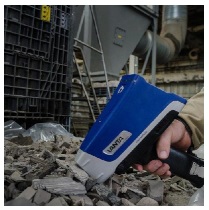What are the symptoms of a bad catalytic converter?
What does a bad catalytic converter cause? What happens when you have a bad catalytic converter? What are the symptoms of a failing catalytic converter?
The catalytic converter is a very important part of the emissions control system on your vehicle. It’s usually good for the life of a vehicle, but occasionally it does fail. The best thing you can do is be alert for signs of trouble and head for a service facility if you suspect that the catalytic converter is malfunctioning.
Technicians will put your vehicle on an electronic diagnostic machine to locate the source of the problem, possibly remove the oxygen sensor from the exhaust manifold or exhaust pipe ahead of the catalytic converter to see if that changes things and replace the catalytic converter, if necessary.
A wide range of dysfunctions can result from a malfunctioning catalytic converter. Any issue related to the engine can indicate an issue related to the converter:
Rattling noise under the car
Rattling from under your car– This can be caused by honeycomb material inside the catalytic converter break apart due to excessive heat or damage. The noise will often be the loudest when starting the car. You may remove and replace your catalytic converter because brake noises are safety issues and require immediate attention.
The smell of rotten eggs from the exhaust
When it breaks or the filtering layers have worn down inside, the sulfur is not transformed into an odorless form. Therefore a strong rotten egg smell is produced. Another possible cause for this smell may be that the converter is plugged.
Failed emission test
your vehicle’s emissions must be checked annually to make sure everything is working properly. Tho, a leaky or fault catalytic converter will cause you to fail emissions tests. Catalytic converters are essential in reducing all emissions, and if it's broken you may change it immediately.
“Check engine light" on
“Check Engine Light” will come on when your vehicle’s catalytic converter is failing or gone bad. A faulty catalytic converter will trigger a check engine light. In addition, deteriorated spark plugs or a broken oxygen sensor can make your catalytic converter fail.
Fuel efficiency drops suddenly
If you notice a sudden decrease in your gas mileage, it could be a sign of a clogged catalytic converter, or perhaps a faulty one. When your engine gets less oxygen — or when there is resistance in the exhaust path — your engine has to work harder, which ultimately consumes more fuel, causing you to get fewer miles to the gallon.
Related Questions
- What is a catalytic converter?
- What is the catalyst of a catalytic converter?
- What is the difference between “oxidation” and “three-ways’ converters?
- Can a bad catalytic converter cause a car to overheat? what causes a converter to become red hot?
- What causes a catalytic converter to become clogged?
Still need help ?
Contact our 24/7 support.

























